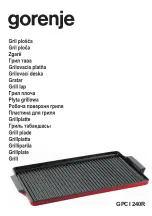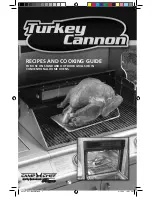
26375 2/18 | 85-000870_INST_B
MINIAC DOUBLE WIRELESS CC-317 CYCLING COMPUTER INSTRUCTIONS
6400 WEST 105TH STREET // BLOOMINGTON, MN 55438 // 1-855-883-6563 // WWW.MSWBIKE.COM
Place the included rubber pad between the sensor and the chainstay.
The sensor is attached using two included zip ties, but do not fully tighten
them until the wheel and crank arm magnets are in place, and the adjustments
that yield the best readings are made between the sensor, sensor arm, and the
magnets (fig. 5).
The distance between the crank arm magnet and the sensor, and between
the rear wheel magnet and the sensor arm should not exceed 3mm.
MOUNTING THE CRANK AND WHEEL MAGNETS
1. Place the crank arm magnet on the inside of the crank arm 2 to 3cm up the
arm from the pedal spindle and zip tie it in place.
2. Position the larger part of the sensor close enough to the crank arm that the
required distance between it and the crank arm magnet is achieved (fig. 6).
3. Using this sensor placement as a guide, position the wheel magnet in the
approximate area that it will pass the sensor arm on the inside of the
chainstay. The wheel magnet is tightened to the spoke by threading
it into the magnet bracket that sits behind the spoke (fig. 7).
4. Holding the larger part of the sensor in place with one hand, rotate the arm
of the sensor so that the required distance between it and the wheel
magnet is achieved.
5. Use two zip ties to tighten the sensor to the chainstay, and snip off the
excess length.
6. Make any final adjustments to the sensor arm to achieve the required
distance between it and the wheel magnet, and tighten the knurled dial.
7. Test to make sure that the magnets are activating the sensor, and the
computer head unit is registering the magnets as they pass the sensor.
WHEEL SIZE CHART
CALCULATING WHEEL CIRCUMFERENCE
To get the most accurate speed and distance data, the wheel size must
be correct. Mark the tire or position the valve stem at the 6 o’clock position
and push the bike until the mark or valve
stem is back to 6 o’clock. Then measure
the length between two points to get the
circumference.
Refer to the wheel size chart for diameter
and tire width. If your wheel and tire size
is not listed, use the following wheel
circumference equation:
Circumference (mm) = 2 x 3.14 x R (inch) x 2.54
(1 inch = 2.54cm), R = radius in centimeters.
Figure 5
1–3mm
1–3mm
Spoke
Chainstay
(non-driveside)
Rear
Wheel
Front
Wheel
Cadence Sensor
Speed Sensor
Zip Tie
Cadence Magnet
Crank
Pedal
Cadence Sensor
1–3mm
Figure 6
Figure 7
Tire Scale
L (mm)
14 x 1.50"
1020
14 x 1.75
1055
16 x 1.50
1185
16 x 1.75
1195
18 x 1.50
1340
18 x 1.75
1350
20 x 1.75
1515
20 x 1-3/8
1615
22 x 1-3/8
1770
22 x 1-1/2
1785
24 x 1
1753
24 x 3/4 Tubular
1785
24 x 1-1/8
1795
24 x 1-1/4
1905
24 x 1.75
1890
24 x 2.00
1925
24 x 2.125
1965
26 x 7/8
1920
26 x 1 (59)
1913
Tire Scale
L (mm)
26 x 1 (65)
1952
26 x 1-1/8
1970
26 x 1-3/8
2068
26 x 1-1/2
2100
26 x 1.40
2005
26 x 1.50
2010
26 x 1.75
2023
26 x 1.95
205
26 x 175
2023
26 x 1.95
2050
26 x 2.00
2055
26 x 2.10
2068
26 x 2.125
2070
26 x 2.35
2083
26 x 3.00
2170
27 x 1
2145
27 x 1-1/8
2155
27 x 1-1/4
2161
27 x 1-3/8
2169
Tire Scale
L (mm)
27.5 x 2.10
2170
27.5 x 2.30
2202
29 x 2.10
2288
29 x 2.30
2326
650 x 35A
2090
650 x 38A
2125
650 x 38B
2105
700 x 18C
2070
700 x 19C
2080
700 x 20C
2086
700 x 23C
2096
700 x 25C
2105
700 x 28C
2136
700 x 30C
2146
700 x 32C
2155
700c Tubular
2130
700 x 35C
2168
700 x 38C
2180
700 x 40C
2200























